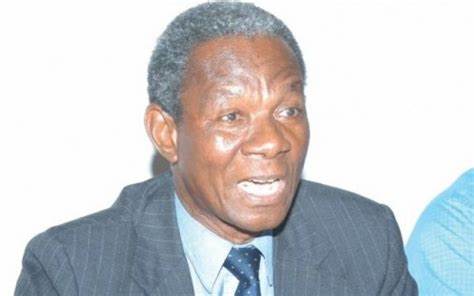Renowned economist, Kwame Pianim, has criticized the license revocation approach adopted by the Bank of Ghana and the Securities and Exchange Commission in cleaning up the financial sector.
As part of the efforts to sanitize the financial sector, the Central Bank and the SEC were forced to withdraw licenses of firms that were insolvent.
But speaking at the Tesah Capital Webinar on “investing in the financial sector post clean up”, Mr. Pianim said this should have been the last approach.
He also raised issues about the lack of regulatory coordination of the sector.
“I think that what happened in the past was due partly to lack of jurisdiction. With some of the ponzi schemes, it was not clear whether the Bank of Ghana or the Securities Exchange Commission was to regulate them.”
“Revoking a license is not the right way to do to these companies. The idea is to be there, guide them when they are going wrong and let them know that you’re monitoring their accounts so if they’re not paying their bills, you are going to deal with them,” he said.
Meanwhile, the Deputy Director General of the Securities and Exchange Paul Ababio has been giving details on payment to be made to customers of Black Shield Capital.
“Gold Coast is still in court with us so we haven’t got a liquidation order for them. So, on that side, it’s a partial bailout but once we secure the liquidation order or know the outcome, we’ll know the way forward.”
“What is happening now is that those we have liquidated are those we bring into the full bailout. So those who do not have will be in the partial bailout until it is completed,” he said.
Financial sector clean-up
On Monday August 14, 2017, the BoG revoked the licenses of two prominent indigenous banks – Capital Bank and UT Bank.
At the same time, the Central Bank had approved a Sale and Purchase Agreement that allowed GCB Bank to immediately take over the assets of the distressed banks.
It followed with subsequent revocation of licenses of uniBank, The Royal Bank, Beige Bank, Sovereign Bank, and Construction Bank that were merged into Consolidated Bank Ghana (CBG).
Governor, Dr. Ernest Addison explained at a press briefing that these banks were vulnerable with inadequate capital, high levels of non-performing loans, and weak corporate governance.
Latest Stories
-
Boakye Agyarko urges reforms to revitalise NPP after election defeat
13 minutes -
Finance Minister skips mini-budget presentation for third time
14 minutes -
‘ORAL’ team to work gratis – Ablakwa
22 minutes -
Affirmative Action Coalition condemns lack of gender quotas in Transition, anti-corruption teams
31 minutes -
December 7 election was a battle for the ‘soul of Ghana’ against NPP – Fifi Kwetey
32 minutes -
Social media buzzing ahead of Black Sherif’s ‘Zaama Disco’ on December 21
46 minutes -
Afenyo-Markin still suffering from the massive defeat – Fifi Kwetey
54 minutes -
Retain Afenyo-Markin as NPP leader, he has experience – Deputy Speaker
1 hour -
Kufuor didn’t leave behind a strong economy – Fifi Kwetey
1 hour -
It won’t be business as usual, remain humble – Fifi Kwetey to party members
2 hours -
Ebenezer Ahumah Djietror appointed as new Clerk to Parliament
3 hours -
Actress Benyiwaa of ‘Efiewura’ TV series dead
3 hours -
Ashanti Regional Chief Imam dies at age 74
4 hours -
Africa Arts Network calls for tax reform to save Ghana’s theatre industry
4 hours -
SSTN Ghana Chapter reaffirms commitment to economic growth under new leadership
4 hours

